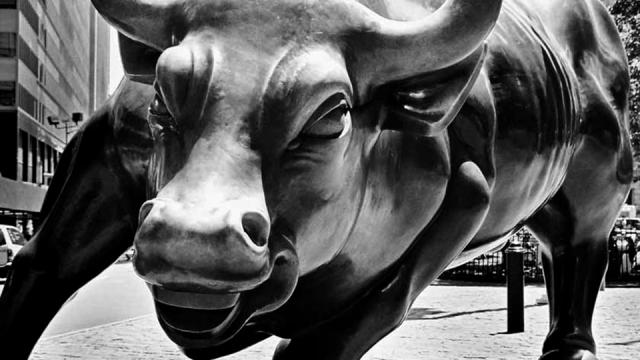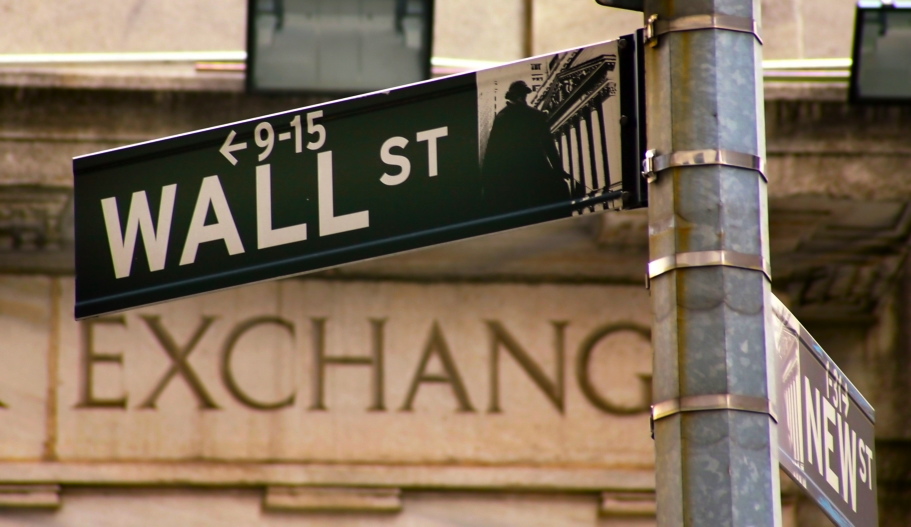
As workers across the nation and around the world take to the streets to highlight income disparities between workers and the business elite, lobbyists continue to carry out successful campaigns aimed at protecting corporations from disclosing the numbers behind the disparity.
In 2010, it seemed the lobbying arm of the corporate world failed when newly-minted President Barack Obama signed the Dodd-Frank Wall Street Reform and Consumer Protection Act, ushering in a new law expected to lead to greater transparency among corporate executives and their earnings.
“Passing this was no easy task,” Obama said after signing the bill into law. “We had to overcome the furious lobbying of an array of powerful interest groups and partisan minority determined to block change.”
It’s estimated more than $1 billion was spent on lobbying against the Dodd-Frank Act. Yet three years later, that provision of the Act has yet to be enforced — the lobbyists are still winning.
Yet despite the attempts to cover up the growing disparity between rich and poor, Americans on the lower end are living a reality that can’t be hidden.
“I’m fighting for $15,” McDonalds employee Robert Wilson said at an April Chicago retail and fast-food workers rally. “I don’t see the point of people having full-time jobs that don’t pay enough to cover their basic needs.”
Why are workers upset?
“It’s a simple piece of information shareholders ought to have,” the leader of the Financial Crisis Inquiry Commission, Phil Angelides, told Bloomberg News. “The fact that corporate executives wouldn’t want to display the number speaks volumes,” he said, adding that the success by corporations is directly tied to their fierce lobbying efforts.
At the head of that lobbying effort is HR Policy Association, the representative of more than 330 top corporations, including McDonald’s Corp., General Electric Co. and AT&T Inc., according to Bloomberg’s data.
What Americans do know is that the top 1 percent income earners’ wealth has grown by more than 275 percent in the last 30 years. According to the Society for Human Resource Management, the CEOs of America’s top companies are making 354 times more than the average worker. The annual salary for the average S&P 500 company chief executive is $12.3 million — that’s compared with the average annual worker compensation of $35,645.
A shocking example of this came in 2011, when the nation learned that the CEO of retail outlet JCPenney was taking home more than 1,700 times the salary of the average store worker.
“When CEOs switched from asking the question of ‘how much is enough’ to ‘how much can I get,’ investor capital and executive talent started scrapping like hyenas for every morsel,” University of Toronto’s Rotman School of Management Dean, Roger Martin, told Bloomberg. “It’s not that either hates labor, or wants to crush their lives. They just don’t care.”
A nation divided — literally
Since 2009, the divide between chief executives and the average worker has grown by 20 percent.
Between 1979 and 2007, the top 20 percent of income earners in America saw their salary increase by 65 percent. The bottom 20 percent saw just an 18 percent increase.
When it comes to economic recovery, the picture isn’t so rosy for the average worker. The national minimum wage today still sits at $7.25 — with only 30 percent of the purchasing power it had in 1968. To break that down, a worker earning the federal minimum wage takes home $1,141 each month — for a single mother, this still falls below the poverty line.
And it’s this very sector that is growing in today’s economy. Positions in the “low-wage” sector have grown 2.7 times faster than those in the middle-class income position, according to the National Employment Law Project. So while national employment reports may indicate workers heading back into the workforce, a number of workers are doing so at the risk of stepping down the income ladder.
“It’s not just your teenagers with after-school jobs,” Jonathan Westin of New York Communities for Change told the Huffington Post in November 2011. “It’s mothers, fathers and families. Especially now after the recession, a lot of people who lost work are now taking these jobs. Our economy is becoming a service sector economy, but most of these jobs are minimum wage. This is a huge problem.”
Even the former pope had something to say about the ever-growing divide. In one of his final statements, for the World Day of Peace in 2012, Pope Benedict XVI delivered a message to the world to watch its gluttonous ways:
“Although the world is sadly marked by hotbeds of tension and conflict caused by growing instances of inequality between rich and poor, by the prevalence of a selfish and individualistic mindset which also finds expression in an unregulated financial capitalism, as well as by various forms of terrorism and crime, I am convinced that the many different efforts at peacemaking which abound in our world testify to mankind’s innate vocation to peace.”
Recently, there have been efforts to raise the national federal minimum wage, but those attempts have been halted by the U.S. Congress. House Republicans voted down a proposal in March to raise the bar to $10.10 an hour, with the expectation of hitting that over the course of the next two years. A year prior, a similar bill that proposed to raise the minimum wage to $9.80 also failed to gain enough support.
Originally published by MintPress News.
3 WAYS TO SHOW YOUR SUPPORT
- Log in to post comments












